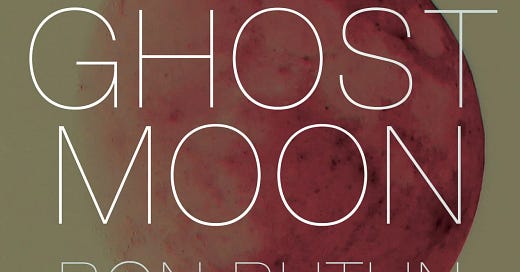Maggie Davies is ninety and clasped by dementia. Her son, Tom - unrecognised by Maggie – visits her care home while her failing memory overlaps past and present. Neither are pretty. Pregnant, thrown out of her home for bringing shame on the family, spurned by all but her sister-in-law, Maggie is a smart and resourceful woman determined to resist the consequences of the label ‘unmarried mother’ and build a future for her and her son. As one character says in typical Butlin understatement: ‘It isn’t easy.’
Both narratives – a woman forced to fight for her own son and its mirror, the son fighting to be recognised by his mother – are deeply moving without ever becoming cloying or overdone. Butlin’s wit and eye for the everyday intruding allows him to balance conflicting emotions. Tom, moved to nausea by both the smells of the care home and the pre-death grief he is experiencing can’t help but notice the gorgeous Polish nurse. At the height of the most dramatic scene in the novel, Maggie shows a macabre sense of humour.
As is often the case with double narratives, one is more heavily weighted than the other. In this case, it’s Maggie’s past. We get brief snatches of Tom’s life but it’s primarily for context. These chapters, though slight, are nonetheless powerful. The second person, the ‘you’ so often deployed by horror and crime writers to bring immediacy to fear here serves to ratchet up the sickening sadness of his mother screaming, ‘I don’t know you, get out.’
The two strands are carefully separated until the final chapter when, as Maggie approaches her own end, Tom is permitted access to the memories he previously assumed were rambling symptoms of her illness. The structural breakdown is deftly handled, the joins seamless.
We are in similar territory to Will Self’s Umbrella but what Self does with Modernist firecrackers, Butlin achieves with understated empathy and the poet’s sureness of phrase. Deep thematic imagery – illusions, time, correspondence – which would be neon-signposted by Self, are more subtly deployed. Butlin, who has no need for Self’s smothering approach, allows the imagery to breathe.
Unlike Umbrella, Ghost Moon rejects nostalgia. Where the former ends with ghosts and empty rooms, Butlin ends at a beginning, an almost haiku moment of positive intensity. In the present Tom can’t reach her but in the past they’re always together. Their relationship is outside time. When Maggie left her parents’ home, alone but for her unborn son, she stole the pendulum from the grandfather clock and launched it into the sea. From that day on, she keeps her own time.




